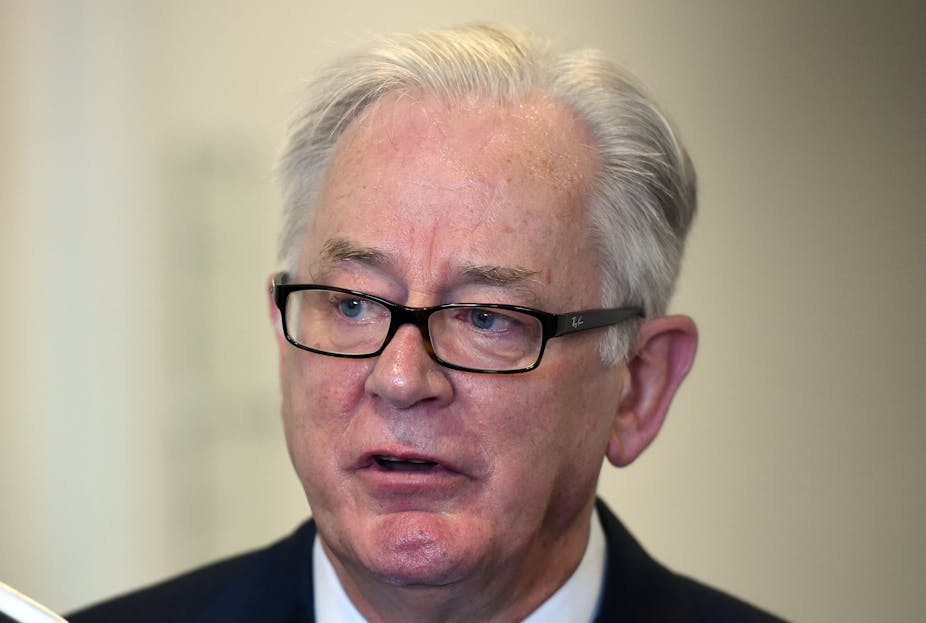The Turnbull government is unwilling to say whether the Chinese-owned company Landbridge, which leases the Port of Darwin, would have to sign up to its register of agents of foreign interests.
The register is part of the government’s two-bill package of legislation to counter foreign interference, which it wants through parliament by the end of this month.
One bill has come out of the parliamentary joint committee on intelligence and security, with some 60 bipartisan amendments proposed.
Read more: Grattan on Friday: Government and Labor unite to erect the barriers against foreign interference
In an effort to meet criticisms that charities and private companies would be caught by the other bill, the Foreign Influence Transparency Scheme, and to get agreement on that legislation the government last week substantially cut back the proposed scope of the register.
But in the process, it has created a grey area affecting Chinese companies such as Landbridge that are privately-owned but are considered to have links to the Chinese regime. Landbridge has employed former trade minister Andrew Robb.
The bill originally provided that entities and individuals be required to register if undertaking certain activities on behalf of a foreign government, public enterprise, political organisation, business or individual.
The change, proposed by Attorney-General Christian Porter, would narrow the “foreign principals” to foreign governments, foreign government-related entities, foreign political organisations and foreign government-related individuals.
Under the amendments, the secretary of the Attorney-General’s department would have a power to issue notices stating a person or organisation was considered a foreign government-related entity or individual.
While this would give the government flexibility, it would presumably require investigation of the foreign links and could involve disputation with the company in question.
Read more: Turnbull government shrinks Foreign Influence Transparency Scheme register
In response to a question put by The Conversation to Porter asking whether Landbridge, and Robb himself, would need to appear on the register under the changes, Porter’s spokesman said: “The answer is that it depends.”
He said the Attorney-General “is not going to get into making assertions about who may or may not have to register. They’re questions that should really be directed to the entities/individuals themselves.
"If those required to register under the Act, when it becomes law, don’t register, there are penalties of up to five years jail … and where there are issues the Secretary of the Attorney-General’s Department can issue a Transparency Notice - which can be challenged in the Administrative Appeals Tribunal”.
It is likely that the parliamentary intelligence and security committee, which is now considering the very extensive Porter amendments to the register bill, will want more clarification on how things would operate in the grey area.
The committee had a phone hook up on Friday and has asked for submissions by Friday of this week. It may hold a public hearing next week, but it will be a rush if it is to finish its work in time to get the revised bill through parliament before the winter adjournment.
Peter Jennings, executive director of the Australian Strategic Policy Institute, said the government would be forced to do tough due diligence on companies.
“This will demonstrate that large Chinese companies are invariably connected to the Communist Party”. Therefore Landbridge should be on the register and so should Robb, Jennings said.

